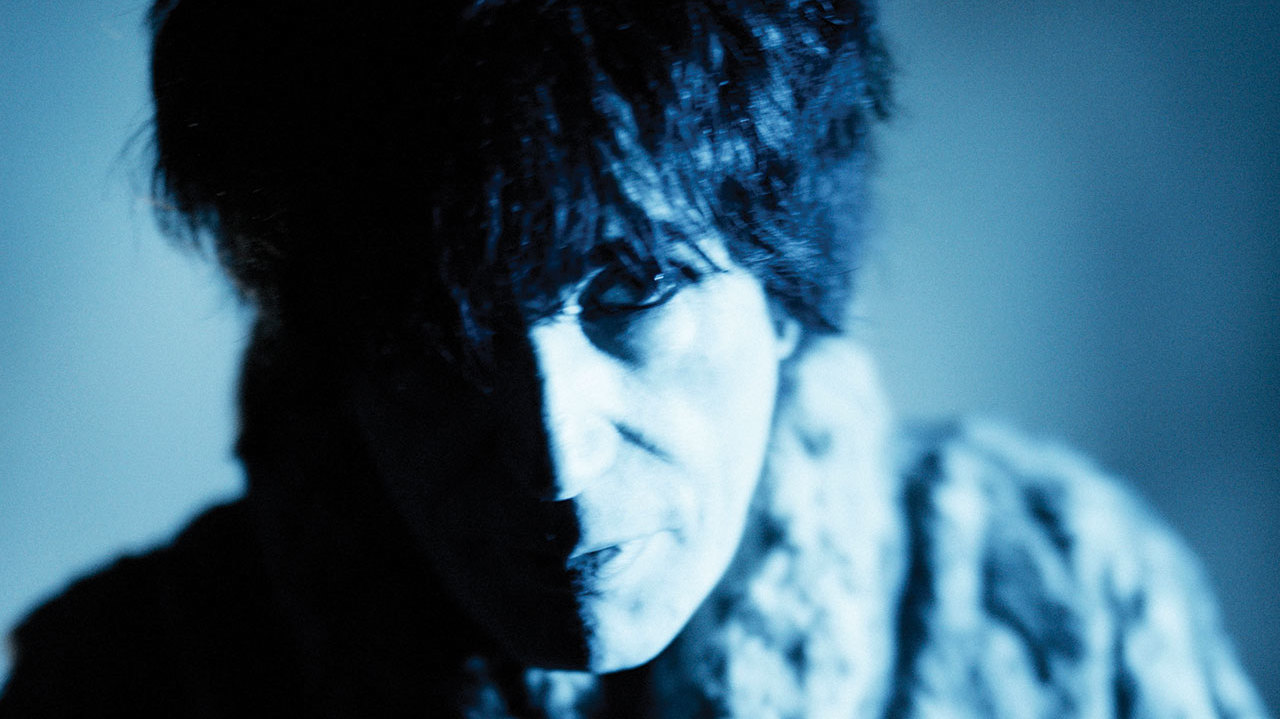Peter Perrett: "Music is less dangerous to your health than other escapes"
The former Only Ones frontman returns with his first record in 16 years, knowing he’s lucky to still be alive

Select the newsletters you’d like to receive. Then, add your email to sign up.
You are now subscribed
Your newsletter sign-up was successful
Want to add more newsletters?

Every Friday
Louder
Louder’s weekly newsletter is jam-packed with the team’s personal highlights from the last seven days, including features, breaking news, reviews and tons of juicy exclusives from the world of alternative music.

Every Friday
Classic Rock
The Classic Rock newsletter is an essential read for the discerning rock fan. Every week we bring you the news, reviews and the very best features and interviews from our extensive archive. Written by rock fans for rock fans.

Every Friday
Metal Hammer
For the last four decades Metal Hammer has been the world’s greatest metal magazine. Created by metalheads for metalheads, ‘Hammer takes you behind the scenes, closer to the action, and nearer to the bands that you love the most.

Every Friday
Prog
The Prog newsletter brings you the very best of Prog Magazine and our website, every Friday. We'll deliver you the very latest news from the Prog universe, informative features and archive material from Prog’s impressive vault.
Before his just-released new solo album, Peter Perrett’s last one came out in 1996. That’s a full 16 years after his final album with the Only Ones, the seditionaries who blazed a brief, brilliant trail across the post-punk skyscape, best known for their era-soundtracking 1978 single Another Girl, Another Planet.
Decades of drug addition served to numb his creative spirit, but the now clean-living Perrett has finally returned with How The West Was Won. Reassuringly, it shows that his songwriting chops are intact, along with his dry wit, sharp lyricism and sneery drawl.
How come you finally made a solo album?
I did four gigs in the summer of 2015. The physical aspect of rehearsing for those shows meant that I was playing guitar again and my mind was back in a place where it was capable of being creative. So I wrote a couple of new songs and it just sort of enthused me. The momentum started rolling from there.
Once you were up and running, did the songs start flowing again?
Absolutely. My output over the decades has been minimal, to say the least. So when I do do something, I want to do it to the best of my ability. Now I’ve got less distractions than I had earlier in life. Music is the only thing that really fills me with that driving passion. I’m fortunate to have it as an escape. It’s more benign and less dangerous to your health than other escapes. It’s something that can extend your life rather than shorten it.
You’re touring later this year, too.
Sign up below to get the latest from Classic Rock, plus exclusive special offers, direct to your inbox!
In the seventies, and even when I was active for a couple of years in the nineties, playing live felt like an exorcism – all your inhibitions could be released on stage and it was very liberating. Nowadays I have to be much more reserved and concentrate on saving my breath and energy for singing.
The Only Ones reunited for some live shows back in 2007. Was that a conflicted time for you?
It was enjoyable because the fans were amazing and they made it almost like a religious experience. The only drawback was that my voice wasn’t great, because I hadn’t got myself physically healthy enough to do it justice. I’m very self-critical, and I wasn’t at the top of my game. If I’d had any capabilities of being able to exercise logic in the decision to re-form for those gigs, I would’ve said no to it, but I didn’t want to disappoint the people who’d been my brothers thirty years before. So it was a hard position to be in. I was using a steroid inhaler for my lung problems and, like most things, I used it to excess.
Are drugs definitely a thing of the past for you now?
Yeah, in every way. I knew that if I wanted to survive at all I had to change my lifestyle. After I gave up hard drugs I carried on smoking skunk, then took methadone for a while. But I gave up smoking anything six years ago because my lungs were suffering the most.
At the very last moment, you think about survival and any last will and testament. That’s the only reason why any urgency has taken over my psyche and I’ve been working hard to get things back together. I know there’s a limit to my time, that I’d better do things properly while I can. Thankfully I’m still here.
How The West Was Won is out now via Domino Recording Co.
Freelance writer for Classic Rock since 2008, and sister title Prog since its inception in 2009. Regular contributor to Uncut magazine for over 20 years. Other clients include Word magazine, Record Collector, The Guardian, Sunday Times, The Telegraph and When Saturday Comes. Alongside Marc Riley, co-presenter of long-running A-Z Of David Bowie podcast. Also appears twice a week on Riley’s BBC6 radio show, rifling through old copies of the NME and Melody Maker in the Parallel Universe slot. Designed Aston Villa’s kit during a previous life as a sportswear designer. Geezer Butler told him he loved the all-black away strip.

